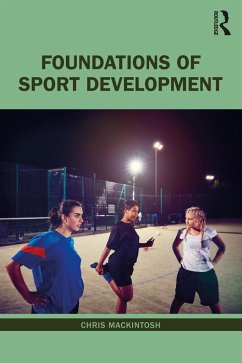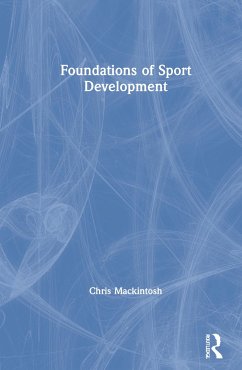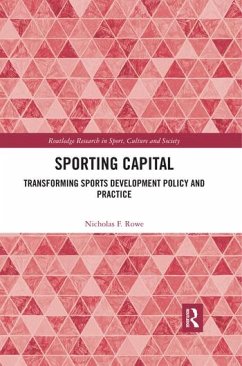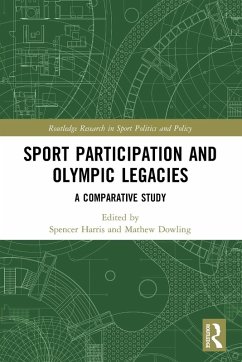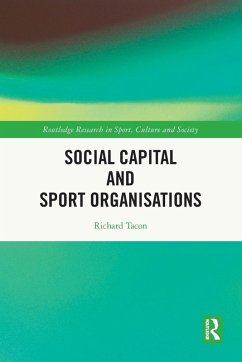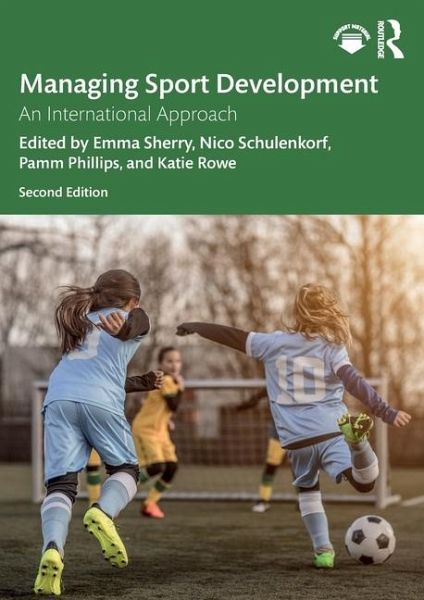
Managing Sport Development
An International Approach
Herausgegeben: Sherry, Emma; Schulenkorf, Nico; Phillips, Pamm; Rowe, Katie
Versandkostenfrei!
Versandfertig in 6-10 Tagen
47,99 €
inkl. MwSt.
Weitere Ausgaben:

PAYBACK Punkte
24 °P sammeln!
Now in a fully revised and updated second edition, Managing Sport Development is a complete introduction to sport development, covering key concepts and theory as well as best practice in the management, implementation, and evaluation of sport development programs.This book explains what sport development is, and how it works, in both of its main areas of operation: the development of sport (creating pathways for participation and talent development) and sport for development (using sport as a tool to achieve outcomes beyond sport). Including international cases and data throughout, as well as...
Now in a fully revised and updated second edition, Managing Sport Development is a complete introduction to sport development, covering key concepts and theory as well as best practice in the management, implementation, and evaluation of sport development programs.
This book explains what sport development is, and how it works, in both of its main areas of operation: the development of sport (creating pathways for participation and talent development) and sport for development (using sport as a tool to achieve outcomes beyond sport). Including international cases and data throughout, as well as discussion of both able-bodied and disability sport, it examines the organisation and governance of sport development programs around the world and how to achieve the right outcomes. This new edition includes new and expanded coverage of such topics as sustainable development; the impact of COVID-19; integrity and human rights; careers in sport development; the role of coaches, change agents, and volunteers; and the research process and knowledge sharing. This book includes a range of useful features to aid understanding, such as learning objectives, real-world data and examples, key terms, and review questions.
Managing Sport Development is an essential text for any introductory sport development course and invaluable reading for any course on international sport management, sport policy, sport governance, sport and social issues, or coach education.
Ancillary resources accompanying this book include PowerPoint slides and a test bank.
This book explains what sport development is, and how it works, in both of its main areas of operation: the development of sport (creating pathways for participation and talent development) and sport for development (using sport as a tool to achieve outcomes beyond sport). Including international cases and data throughout, as well as discussion of both able-bodied and disability sport, it examines the organisation and governance of sport development programs around the world and how to achieve the right outcomes. This new edition includes new and expanded coverage of such topics as sustainable development; the impact of COVID-19; integrity and human rights; careers in sport development; the role of coaches, change agents, and volunteers; and the research process and knowledge sharing. This book includes a range of useful features to aid understanding, such as learning objectives, real-world data and examples, key terms, and review questions.
Managing Sport Development is an essential text for any introductory sport development course and invaluable reading for any course on international sport management, sport policy, sport governance, sport and social issues, or coach education.
Ancillary resources accompanying this book include PowerPoint slides and a test bank.





